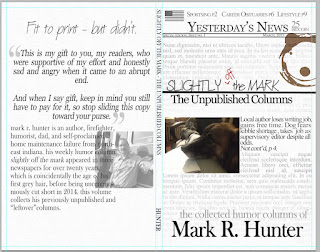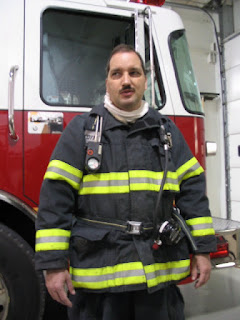Much as I tried, I couldn't write anything new this year to memorialize the events of 9/11.
I was so heartsick over our horribly bungled and costly withdrawal from Afghanistan, I found myself unable to say anything that wouldn't just attract pointless political arguing. Oh, I found words--I'd even go so far to say they were eloquent. But despite the obvious connection, writing about it now would only take away from remembrance of the terrorist attacks.
So I deleted the whole thing, thus saving the internet another corner of hate throwing and name calling. Instead, I'm reprinting here the column I wrote for the 10th anniversary of 9/11. Sadly, I didn't need to make many changes.
--------------------------------------------------------------------------------------
I've mentioned before that I’m
uncomfortable using the word “hero”. Like many words, it’s overused and
clichéd. What is a hero? Not a sports star. Being tough doesn’t make a
hero. Not a skydiver. That may make you brave, but not heroic.
Ronald Bucca was a member of the 101st
Airborne, then served in the Special Forces and Green Berets while on
active duty in the army. He became a New York City firefighter in 1978,
and on September 11, 2001, became the only FDNY fire marshal ever killed
in the line of duty.
Does
somebody become a hero when they take on a dangerous occupation? I
don’t know … the flagger who controls traffic during road construction
has an especially dangerous job, but I don’t know if you’d call it
heroic. You could even argue that a firefighter or police officer
doesn’t automatically become a hero the moment he puts on the badge.
Maybe – potential hero?
But then, isn’t everyone a potential hero?
Steve
DeChiaro is a businessman, and was just entering the Pentagon for a
meeting when the building was struck by an airplane. No one would have
blamed him for saving himself; he had no legal responsibility to act.
Certainly he never thought he’d end up winning the Defense Department’s
highest civilian award, the Medal of Valor, for his actions in rescuing
and treating people that day.
Sometimes,
maybe, a hero is just someone who overcomes their fear and acts – not
on a lark, but to do something important, something vital.
Tom
Burnett was the vice president of a medical devices company. He found
himself on United Airlines Flight 93, and after his plane was hijacked
he learned, in a cell phone call to his wife, of the attacks on the
World Trade Center. He didn’t know for sure what the hijackers were
planning, but it must have quickly become clear they also wanted to
kill.
Burnett
must have also known that an attempt to take the plane back would
likely be fatal … but that if it failed, they still might keep the
hijackers from taking a large number of civilians on the ground with
them.
Sometimes
being a hero is a matter of relativity. A firefighter might do
something on a day to day basis that others see as heroic, while he just
calls it another day on the job. But others wouldn’t normally expect to
see a crisis, beyond a paper jam in the copy machine.
Welles Crowther was an equities trader. The biggest risk for him on the job was a paper cut, or a coffee burn. He was on the 104th floor of the South Tower when the first plane hit.
Witnesses
described how Crowther, a former volunteer firefighter, took control,
organized people, and got dozens out of the building before it
collapsed.
Sometimes it’s the call of duty, of course.
Moira
Smith, a 13 year veteran of the NYPD, had already been decorated for
heroism. It’s hardly surprising that she headed into the World Trade
Center to rescue people, and became the only female member of the force
killed that day.
Her daughter would be 22 now. I hope people tell her about her mom.
Or … maybe heroism just runs in the family?
Eric
Moreland was a George Washington University student at the time, but
also a volunteer firefighter and paramedic. As often happens to off duty
emergency personnel, he was just happening by when an airplane
crashed into the Pentagon.
Moreland,
at great risk, charged into the burning building and carried injured
people to safety. Then he stayed to help remove the dead. Then he drove
all the way to New York to help out at the world Trade Center.
Moreland’s
grandfather, Lt. Col. Conway Jones, was one of the famous Tuskegee
Airmen of World War II. His father flew 80 combat missions in Vietnam.
Whether it runs in the family or not, some people are just born to serve.
Special
Agent Leonard Hatton fought crime as an FBI agent, fought fires as a
volunteer, and fought for freedom as a US Marine. He reported the second
plan crashing into the south Tower – not from inside the World Trade
Center, but from the roof of a nearby hotel. Then he went in. What else
could he do? He died that day, but if he’d turned his back on the call
for help, he wouldn’t have been able to live with himself.
There will always be some who suffer for their service.
Jim
Ryan survived, but was still a victim of 9/11. A New York City
firefighter, he came back to the WTC site again and again, for months.
He helped search for survivors, then victims, and as time went by there
was nothing left but to search out bits of what were once people.
What else could he do? Over three hundred of his brother firefighters were there.
The
cancer diagnosis came in 2006. His lungs finally failed him on
Christmas, 2009. He was 48, and died on the same day that someone else
grabbed the headlines by trying to bring down another plane, with a
chemical bomb strapped to his leg.
On
September 11, 2001, 341 FDNY firefighters and 2 Fire Department
paramedics were killed; 23 NYPD officers died, along with 37 Port
Authority PD officers and 8 private EMS medics.
On
9/11 at least 200 people, faced with the horrors of burning to death,
jumped from the Twin Towers. Among the almost 3,000 who died in the four
sites linked in the attack were citizens of over 70 nations. I don’t
know how many of those people qualified as heroes. A lot of them,
certainly. And just as certainly, the dead from that day are only a
fraction of the victims.
Every
now and then some short sighted person will suggest we stop obsessing
so much about 9/11, that we “let it go”. After all, it’s been twenty years,
right?
They’re
wrong. They’ll always be wrong. Ten times twenty years, they’ll be wrong.
Not only because we must keep this from happening again, but because
heroes vanish too quickly, in the flotsam and jetsam of pop culture and
the concerns of everyday life. Their memory goes too quickly, just as
they do.
Be inspired by their stories. Saddened. Enraged. But never forget.


















